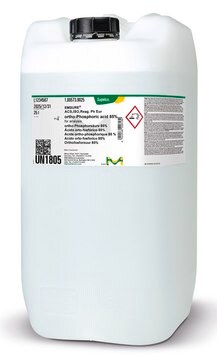Recommended Products
biological source
Streptomyces sp.
Quality Level
form
lyophilized powder
color
yellow to orange
solubility
H2O: 20 mg/mL
antibiotic activity spectrum
neoplastics
mode of action
DNA synthesis | interferes
storage temp.
2-8°C
SMILES string
OC[C@@H](O)[C@@H](O)[C@H](O)[C@H](O)CO.CC(C)[C@H]1NC(=O)[C@@H](NC(=O)c2ccc(C)c3OC4=CC(=O)C(N)=C(C(=O)N[C@H]5[C@@H](C)OC(=O)[C@H](C(C)C)N(C)C(=O)CN(C)C(=O)[C@@H]6CCCN6C(=O)[C@H](NC5=O)C(C)C)C4=Nc23)[C@@H](C)OC(=O)[C@H](C(C)C)N(C)C(=O)CN(C)C(=O)[C@@H]7CCCN7C1=O
InChI
1S/C61H84N12O16.C6H14O6/c1-27(2)43-58(83)72-22-16-18-35(72)56(81)68(12)25-39(75)70(14)49(29(5)6)60(85)87-32(10)45(54(79)64-43)66-52(77)34-21-20-31(9)51-47(34)63-48-38(89-51)24-37(74)42(62)41(48)53(78)67-46-33(11)88-61(86)50(30(7)8)71(15)40(76)26-69(13)57(82)36-19-17-23-73(36)59(84)44(28(3)4)65-55(46)80;7-1-3(9)5(11)6(12)4(10)2-8/h20-21,24,27-30,32-33,35-36,43-46,49-50H,16-19,22-23,25-26,62H2,1-15H3,(H,64,79)(H,65,80)(H,66,77)(H,67,78);3-12H,1-2H2/t32-,33-,35+,36+,43-,44-,45+,46+,49+,50+;3-,4-,5-,6-/m11/s1
InChI key
AURFRHZIDSMTRK-CSXPNASWSA-N
General description
Application
Biochem/physiol Actions
Actinomycin D is an antineoplastic antibiotic that inhibits cell proliferation by forming a stable complex with DNA and blocking the movement of RNA polymerase which interferes with DNA-dependent RNA synthesis. Induces apoptosis. Potent antitumor agent.
Components
Other Notes
signalword
Danger
hcodes
Hazard Classifications
Acute Tox. 2 Oral - Carc. 2 - Resp. Sens. 1
Storage Class
6.1A - Combustible acute toxic Cat. 1 and 2 / very toxic hazardous materials
wgk_germany
WGK 3
flash_point_f
Not applicable
flash_point_c
Not applicable
ppe
Eyeshields, Faceshields, Gloves, type P3 (EN 143) respirator cartridges
Choose from one of the most recent versions:
Already Own This Product?
Find documentation for the products that you have recently purchased in the Document Library.
Customers Also Viewed
Our team of scientists has experience in all areas of research including Life Science, Material Science, Chemical Synthesis, Chromatography, Analytical and many others.
Contact Technical Service







